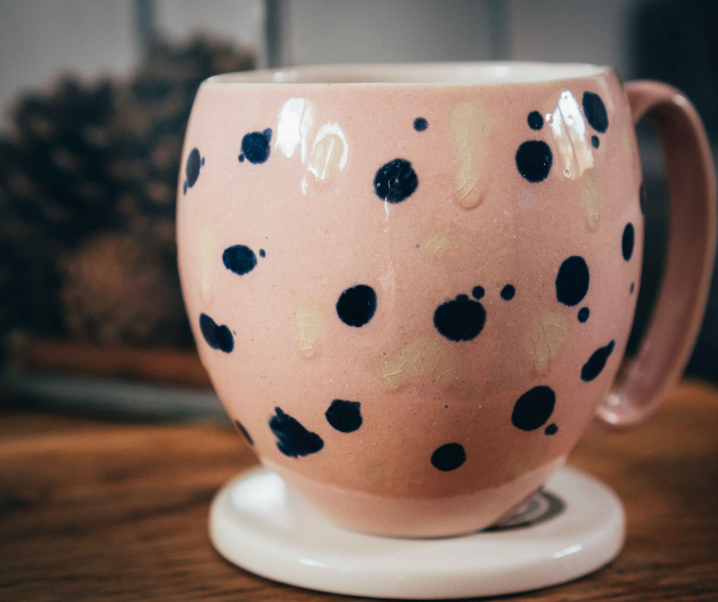
I wrote this on mental health for Medium a while back, but I appreciate that some people who regularly follow my blog wouldn’t have seen it, so here it is on my own personal platform. It got some great feedback so I hope you enjoy it.
Noticing anxiety
I was freelancing for a company a few years back and I made friends with somebody who worked there. She was energetic and ambitious. I always enjoyed my meetings with her because I felt like we could have changed the world with the levels of enthusiasm pulsating through the walls of her office.
I found out she suffered from anxiety — and I immediately sympathised because, well, me too. It wasn’t something we spoke openly about. In fact, I never speak openly about being anxious in any sort of work environment. The person who told me she was an ‘anxious person’ did so with an impatient eye-roll. Interesting — I thought, so if I was open about my feelings of anxiety, I’d be subject to these condescending eye rolls behind my back? As a chronic people pleaser, the idea of being the centre of tempestuous debate when my back was turned was absolutely not an option. In the moment, I didn’t defend her.
It transpired that her anxiety was impacting her work and the lack of sympathy from everybody who worked there baffled me into complete silence. I was still young at the time, so to speak out and defend this woman in front of all those adults wasn’t even an option I considered.
There was one particular woman who was utterly beligerent. She used every opportunity to talk about how bizarre she found people who had mental health issues and how they need to just ‘get it together’. She even, on ocassions, would say it in front of the woman who had been suffering, pleading ignorance if somebody called her out on it. Said woman also regularly commented on how she couldn’t understand how people liked animals, so to say she was low on my list was an understatement.
When the tables turn
A year later, I noticed that she had been putting posts on Facebook about how mental health problems — namely anxiety, can impact anybody at any time. It turns out she was going through her own bout of problems and was trying to strike up the support of the social media community to raise money for a charity event she was doing.
If nothing else, I hope that story encourages people who pride themselves on their stellar mind to realise that nobody is immune to the effects of mental health. Equally, it doesn’t make a person weak or somebody who should be subject to your taunts. Also, people with mental health issues can be very high-performing in life and in their jobs, so it’s not always easy to pinpoint.
The stigma
9/10 people with mental health issues say that the stigma and discrimination around their problem has a negative impact on their ability to live with or recover from it.
This statistic makes me unimaginably sad.
Imagine if people dealt with somebody opening up to them about mental health in the same way that they do when somebody is ill?
‘I’ve been suffering from really bad migraines lately’ is absolutely no different from somebody saying to you ‘I’ve been suffering from really bad panic attacks lately’ and yet the reaction is so different.
When people tell you they are suffering from something mentally, they’re not asking you to present them with an answer. Equally, when somebody tells you they have a migraine they’re not expecting you to offer up a doctor’s analysis or medical cure.
I’m just as bad
I’m going to share another story with you. Travel, up until quite recently, was something that caused me a tremendous amount of stress. I had to travel a lot for work two/three years ago and my stress levels were at an all time high. My two main anxieties were being alone and flying; both of which were becoming a regular occurence in my life.
Not many people would know this for two reasons; 1. My anxiety levels are manageable 95% of the time. 2. I am one of those high-functioning anxious people I mentioned earlier.
I used to pretend I was ill; usually sick. This excuse gathered more empathy from people than me saying I was anxious or having panic attacks. The truth is, there was no option for me to get up early, get on a plane, go to work or even get out of bed. The pattern went something like this:
The weekend before my impending trip (which at the height of my travel was weekly) would be ruined by my ruminating; I don’t want to go, I don’t want to get on the plane, I don’t want to travel alone, I don’t want to stay alone. It sucked all of the good out of everything I was doing. The night before I didn’t sleep and then the morning of my trip (which usually started with a 4.30am alarm) was just an utterly miserable time for me.
So, I would say I was sick. Nobody could moan at somebody for being sick. And you can’t fly if you’re being sick everywhere. It’s also important to note that I was travelling weekly and this only happened a very small proportion of times. As soon as I got to my destination I was absolutely fine, but sometimes, my mind won and I didn’t go.
On two ocassions I got to the airport and couldn’t get on the plane. On one of those ocassions I actually got on the plane and then got off before they closed the doors. Once I changed my flight to get to the airport later only to get to the airport and sit in the toilet crying about how utterly weak and annoying my mind was.
My issues didn’t stop there, though, because lying made me more anxious. I hate lying about anything & I’d worry that everybody could see right through me and would be rolling their eyes just like that woman I mentioned before.
A high-functioning anxious person
I’m sure if some of the people who were involved with me at this point do actually read this article, they’d be shocked. My mental health probably didn’t cross their minds. I’m organised, hard-working and a people pleaser. These character traits don’t fall into people’s preconceptions about anxiety. The thought of my brain actively stopping my body from getting out of bed is something that I’m sure many people can’t imagine.
This is why I wrote this.
I don’t have those problems anymore. I don’t have them because I removed these factors from my life. Fighting problems head on and hoping to get over them works for some people, but it doesn’t for everyone — myself included.
Don’t feel like it makes you weak for avoiding situations that trigger your mental health problem. Sure, try to tackle them, but if tackling them is making you miserable, just stop.
For me, stopping, taking stock of what I wanted from life and changing things was all I needed to do. I think telling anybody to ‘tackle their problem head on’ is a dangerous one. It seems logical; the more you are exposed to it, the easier it will be to get over. And yes, this does work. It got me over my fear of flying, for example. However, the more I was exposed to travelling alone and uprooting my life once a week the more I dreaded each trip.
For some people, staying in one place will make them feel claustrophobic, for others, being alone and at home is what makes them feel grounded. The older I get the more I realise I don’t need to be like everybody else in order to fit in. It’s ok to have differences to your friends or colleagues and perhaps opening up about them will encourage a bigger conversation.
What to do if you don’t understand mental health issues
Some people are lucky enough to just not suffer with any mental health issues. If you’re one of those people, please, I implore you, have sympathy for those who do. Mental health is not something you can turn on and off. It’s always possible to get over a problem (just like an illness) but it takes time.
Perhaps you don’t understand what somebody is going through in the same way that you wouldn’t understand what a cancer patient was going through if you’d never had cancer yourself. You wouldn’t judge a cancer patient because you don’t understand how it feels to have cancer, though, would you?
For me, if my mental health could be treated like any other illness, I would have felt 10x better.
This outward understanding isn’t all it takes, though. Make sure you truly understand in your gut. Respect people’s privacy, don’t talk about their mental health as if it was a jumper they‘re wearing that you don’t like.
This — I think, will go some way to helping people recover quicker and feel less trapped by their own mental health.
Fancy reading a bit more from me? Here’s my article about what it feels like to turn 30 – the mental shift.













